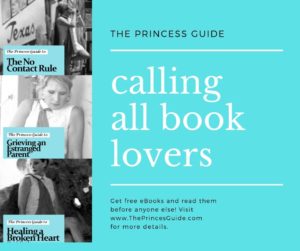I recently heard a commercial in which it was said, “Summer bodies are made in the winter.” This statement reminded me of this blog post from 2014. The winter season is a dark, cold and gloomy one. I’ve been there, and just when I think I have a handle on things and I’m learning the lessons and making the needed changes, I run into a winter season in another area of my life. We’re all works in progress. It’s like a mentor once told me, “We’re all wearing tomorrow’s laundry,” meaning that once we work on one issue in life, others appear.
Talking about the dark places or winter seasons reminds me of what it must feel like to be in a tomb, and since we’re talking about Resurrection Sunday this week, I find this Flashback Friday post quite fitting …
I believe everyone who lives and breathes has seeds of greatness within them ― that’s been a huge problem for me in the past since I tended to see a person for their potential instead of who they have chosen to be today. However, have you noticed that the people who have gone on to achieve some of the greatest things in life went through some really dark times?
Vincent Van Gough (my favorite artist of all time) was an extraordinary painter, but he never made a dime as an artist during his lifetime and ultimately died from the mental illness he suffered from. ― He never made it out of his dark place.
Steve Winn, owner of all the Winstar and Winn casinos, is a very successful businessman and has enough money to afford anything he wants, but he literally lives in a dark place having been diagnosed with an eye disease called Retinitis Pigmentosa which ultimately causes blindness.

How do you grow a baby? In a dark place.
How do you grow a tree? In a dark place.
If you’re going to achieve anything in life or make real changes, you’re going to go through a dark place. Sorry! I wish it could be different because I don’t like the dark place. I’ve spent a lot of time in different dark places, and they’re no fun. But maybe they’re necessary?
” … Real change isn’t joyful,” Bishop T.J. Jakes said in his sermon series about Instinct. “Real transformation is often stressful. You go into dark places. You confront parts of yourself that aren’t happy. You confront parts of yourself that are really challenging. And if you have the courage to do that, if you have the courage to lift the bar beyond your grasp and dare to leap for it, then suddenly your potential is evolved.”
“To that person who is in a dark place right now, that’s just a part of the process. Don’t build a house in it. Pitch a tent in it. Don’t build a house in it because it will ultimately evolve into something far better, far bigger and far more effective,” Bishop Jakes said. “You have to see where you are as an incubator. It is not a destination. It’s transportation.”
Have you experienced a dark place? Was the outcome worth it?
You can find these Flashback Friday blogs posted every Friday. If you want to know more how to have successful relationships and peace of mind, you can get a free PDF sample chapter of “The Princess Guide to Healing a Broken Heart” by filling out the form in the sidebar on this page.









